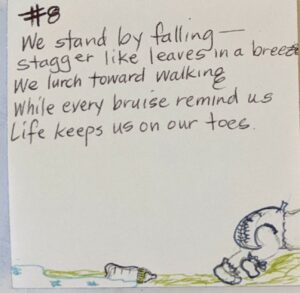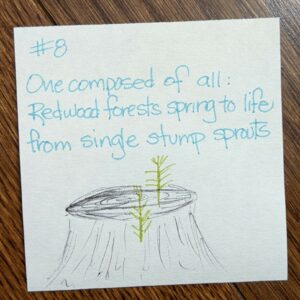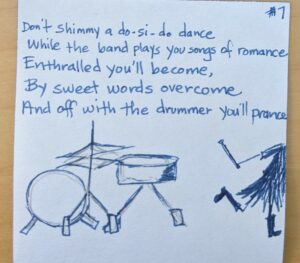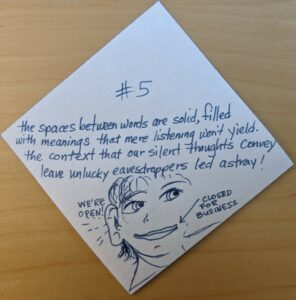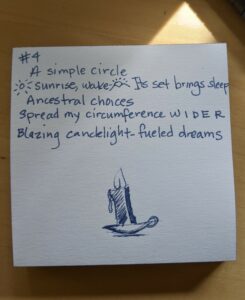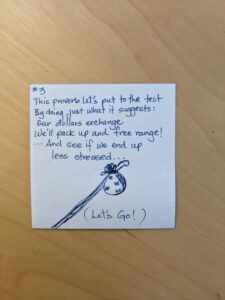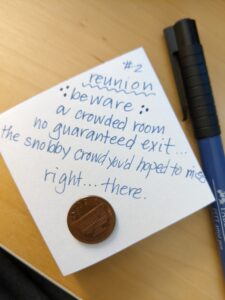
It’s National Poetry Month!
If we recall that a national poetry celebration was only officially launched in 1996, it seems ludicrous. Surely this celebrating has been going on forever! National Poetry Month has certainly gone from strength to strength; more than ever, people are reading poetry, students in schools are studying poetry, and more and more it’s being proven that poetry is good for our heads, good for our hearts, and feeds our souls. Here’s to the joy of a few pithy, provocative, clever, or amusing words to keep us going this month.
This year’s official poster from the Academy of American Poets features a line from an Amanda Gorman. There’s a poem in this place, the poster proclaims, and set within the chaos of crumpled newspapers, blaring headlines, and multiple mouths speaking, it appears that the poet has plenty of fodder for inspiration. Though my brain isn’t quite ready for digging through chaos to discover a month of poetry (WHY does April always seem to just …appear!?), smarter people than I have brought out their stars and prepared, so I’m hitching my wagon to a couple of bright ones:
Amy @ the Poetry Farm gave me the idea of creating poems inspired by proverbs. I’m using less familiar British and American proverbs primarily, but will grab any others which spark a thought. (Proverbicals.com and Phrases.org are two great reference sites.) Poetry Princess Laura, whose preference for short poetry is well-documented, is doing post-it note poems – and I think that’s a worthy length limit for me as well. I look forward to the exercise of trying to come up with short poems on conventional wisdom. Should be easy-peasy, right?
“After all is said and done, more is said than done.”

CALTRANS
The roadside sign is boasting
‘YOUR TAX DOLLARS AT WORK’ while
men in orange weave week-long knots
and TRAPS from TRAFFIC.
CALTRANS – short for the California Deptartment of Transportation – are the slow men in orange. They’re awfully fond of crowing that they’re working our tax dollars. Ironically, most of them seem employed to supervise…
Poetry Friday is posted by my second cousin, Heidi, who is determined to save the planet and bring us together, one poem at a time. Jama-j is rounding up everyone this National Poetry Month over on Alphabet Soup, so do check back to her big list throughout the month. Here’s to Thomas’s Grey’s belief in poetry being words that burn, and thoughts that breathe. Here’s to becoming those who breathe fire.
